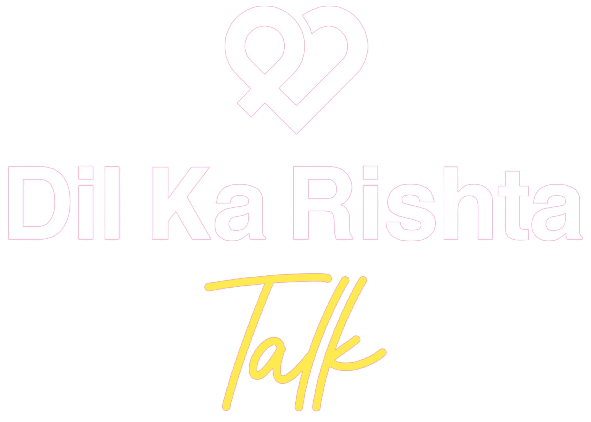Divorce is never easy, and the toll it takes on a family can be immense. It’s not just the end of a marriage, but also the end of a way of life that children and parents have known. The emotional effects can be long-lasting, and navigating through them isn’t always easy. In this blog post, we’ll explore how divorce affects both children and parents alike. We’ll discuss the ways in which society plays a role in this process as well as offer some tips on how to help children cope with these changes.
How divorce affects children
A divorce is a life-changing event for children, and its effects can be long-lasting. Children of divorce may experience a range of emotions, including sadness, anger, confusion, guilt, and anxiety. They may also face challenges in maintaining relationships with both parents after the separation.
One way that divorce affects children is by disrupting their sense of stability and security. When parents separate or divorce, it can uproot a child’s daily routine and leave them feeling uncertain about what will happen next.
Divorce can also have an impact on a child’s academic performance. Research has shown that children whose parents are divorced are more likely to struggle in school than those from intact families.
Children may also feel caught in the middle of their parent’s conflicts during and after the divorce process. This can create stress for them as they try to navigate their own feelings while dealing with the demands of their parents.
In addition to these emotional effects, divorce can also lead to financial instability for some families. The loss of income or assets due to separation or legal fees could cause significant changes in lifestyle for children who were used to certain comforts before the split.
There is no doubt that divorce takes an emotional toll on children that lasts well beyond childhood into adulthood.
How divorce affects parents
Divorce can be an incredibly emotional and trying experience for parents as well. In addition to the pain of ending a marriage, they may also face financial struggles, custody battles, and social isolation.
One of the most significant impacts on parents is the feeling of failure. Many feel like they have let themselves and their children down by not being able to make their marriage work. This can lead to feelings of guilt, shame, and low self-esteem.
Divorcing parents may also struggle with loneliness or isolation as they adjust to life without a partner. They may lose friends or feel ostracized from social circles due to their new status as a single parent.
Financial stress is another common issue faced by divorcing parents. The cost of legal fees, splitting assets or property, and supporting two households instead of one can create significant financial strain.
Co-parenting after divorce can be challenging, especially when disagreements arise over parenting styles or major decisions regarding the children’s upbringing. Communication breakdowns between ex-spouses could cause additional tension that might affect both parties’ mental health negatively.
Divorce affects everyone involved in different ways – including parents who must navigate through difficult emotions while still prioritizing their children’s needs during this difficult time.
The emotional toll of divorce on the family
Divorce is a major life transition that significantly impacts the emotional well-being of everyone involved, especially the children. It can cause feelings of sadness, anger, confusion, and fear for both parents and children. Divorce can create a sense of loss and uncertainty about their future.
For many families, divorce brings an end to years or even decades of shared experiences. The process can be emotionally draining as it involves making difficult decisions and uprooting established routines. Children may feel like they are losing one parent or both, leading to feelings of abandonment.
The effects on family relationships cannot be underestimated either. The dynamics between parents often change after divorces – some become estranged while others develop healthier co-parenting relationships. However, these changes take time to establish which means that there might be temporary chaos in the household.
In addition to this emotional turmoil within the family unit itself, outsiders such as extended family members may also experience pain due to changing relationship dynamics with the couple or child/children involved.
It’s important for families going through divorce to seek support from counselors who specialize in helping families cope with transitions such as separation and divorce. This helps individuals navigate their emotions during this challenging period while also providing guidance on how best they can support each other moving forward.
The role society plays in it
When it comes to the impact of divorce on children and parents, society plays a vital role. While family members are going through the emotional stress caused by separation, they also have to deal with societal pressures and expectations.
One way society affects families is by stigmatizing divorce. Divorce can be perceived as a failure to maintain a relationship or seen as the breaking up of the traditional family structure. Children may feel ashamed or embarrassed about their family situation, which can make them hesitant to open up about their feelings.
Another aspect is support systems. Society has a responsibility to provide adequate resources for children undergoing this traumatic event in their lives. Schools should offer counseling services and mental health support for students dealing with parental separation. Communities can also organize events that bring together divorced families so that they don’t feel isolated or alone.
Additionally, media portrayals of divorce can influence how people perceive it. The way movies or TV shows depict divorces set unrealistic expectations about how easily individuals recover from such an event. It’s important not only that we acknowledge but also represent all stages and steps involved in the process of coping with divorce authentically.
Society has both positive and negative influences on how individuals navigate through familial separations like divorces; therefore, we must strive towards creating an inclusive culture where everyone feels supported during these challenging times instead of ostracized or judged because no one knows what goes behind closed doors
How to help children cope with divorce
It’s clear that divorce can be a challenging experience for both children and parents. It’s important to remember that there is no right way to feel during this time, and everyone copes differently.
If you’re a parent going through a divorce or have already gone through one, it’s crucial to prioritize your child’s well-being. Encourage open communication and validate their feelings. Seek professional help if necessary, such as counseling or therapy.
It’s also essential to maintain routine and consistency for your child, even amidst the changes of separation. Try to avoid putting them in the middle of any conflict between you and your ex-partner, as this can cause additional stress.
As society continues to evolve, we must recognize the impact of divorce on families and work towards creating more resources for those experiencing it. By supporting each other through these difficult times, we can ensure that our children grow up feeling loved and secure despite the challenges they may face along the way.













